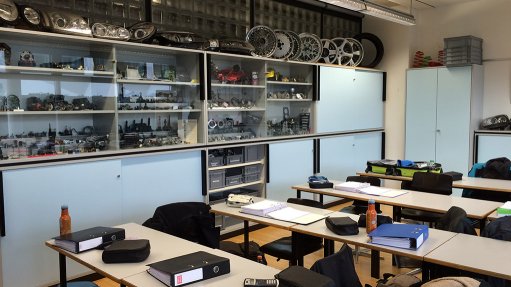
Energy management specialist Schneider Electric South Africa on Thursday boosted its partnership with the French Ministry of Education to promote access to education and training through the country’s technical colleges.
In 2012, the parties teamed up to launch the French–South African Schneider Electric Education Centre (F’Sasec) at the Vaal University of Technology, aimed at developing programmes to train technicians and higher technicians in the fields of energy and electricity in the maintenance of automated systems.
The renewed partnership would see this agreement broadened to include the Cape Peninsula University of Technology, the College of Cape Town, the University of Johannesburg and Sedibeng College.
These centres would aim to train 1 000 students a year from previously disadvantaged backgrounds – young people who were unemployed, as well as students studying in the field of energy.
The programmes would run for four consecutive months.
Higher Education and Training Deputy Minister Mduduzi Manana commented during a signing ceremony that his department was managing the current disruptions in the higher education sector, adding that this sector was “still far from collapse”.
He added that there was a need to change the mindset of young people, as the majority preferred to attend universities, as opposed to technological institutions.
“We are trying to dispel this notion that post-school education means university education only. [We] require skills that are produced at any of our colleges and universities of technology,” he pointed out.
Manana also encouraged employers to step to the fore and open their doors for students to receive necessary work-based exposure. Failing this, it would remain difficult for South Africa to increase the number of artisans and attract investment.
French Ambassador Elisabeth Barbier pointed out that F’Sasec addressed some critical issues hampering local socioeconomic development, the lack of skills and competencies in technological fields.
“South Africa’s economy desperately needs highly skilled workers, as there are currently around 830 000 unfilled positions for skilled to highly-skilled workers across a range of jobs.
“The skills category that is suffering the most is senior management, engineering, medicine, accounting, technicians and artisans and agriculture,” she said, adding that this skills shortages was putting limitations on the country’s long-term economic growth potential, with valuable opportunities often missed.